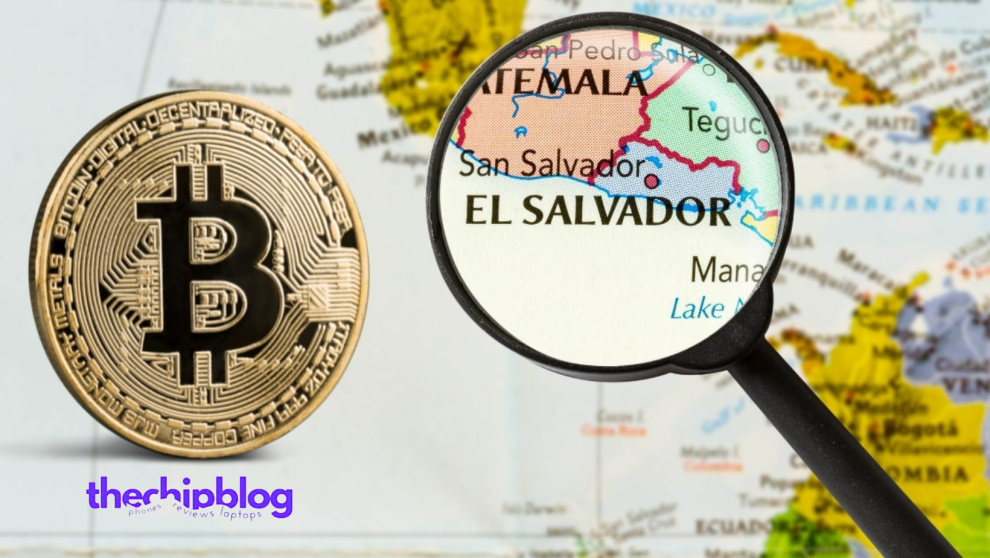The world’s most influential economies have taken an unprecedented step by officially recognizing Bitcoin as legal tender. The Group of Twenty (G20), a coalition of the world’s largest economies, has ushered in a new era of digital finance by granting Bitcoin the same legal status as traditional fiat currencies.
This monumental decision, which was once thought to be an impossible feat, has catapulted the world’s first and most widely recognized cryptocurrency onto the global stage, solidifying its place as a legitimate and widely accepted form of exchange. As the dust settles on this historic announcement, a myriad of questions arise, each one more captivating than the last.
Brace yourselves, dear readers, as we embark on an exhilarating journey through the intricacies of this seismic shift, exploring the ramifications of Bitcoin’s official recognition as legal tender by the G20 nations and delving into the profound implications it holds for the global financial ecosystem.
What Does Bitcoin’s Official Recognition as Legal Tender Mean?
To fully grasp the magnitude of this groundbreaking decision, it’s essential to understand the concept of legal tender and its significance in the realm of finance. Legal tender refers to the officially recognized form of currency that must be accepted for the settlement of debts and the payment of taxes within a given jurisdiction.
By granting Bitcoin the status of legal tender, the G20 nations have effectively elevated the world’s most prominent cryptocurrency to the same level as their respective national currencies. This means that businesses, financial institutions, and individuals within these economic powerhouses are now obligated to accept Bitcoin as a valid form of payment, paving the way for its widespread adoption and integration into mainstream financial systems.
But this decision goes far beyond mere recognition; it represents a seismic shift in the global financial paradigm. Bitcoin’s decentralized nature and the underlying blockchain technology that powers it have long been viewed with skepticism by traditional financial institutions and regulatory bodies. However, this unprecedented move by the G20 nations signals a profound shift in perception, acknowledging the immense potential and viability of cryptocurrencies as a legitimate and integral component of the global economy.
Why is Bitcoin’s Recognition as Legal Tender Groundbreaking?
The implications of Bitcoin’s official recognition as legal tender by the G20 nations are nothing short of seismic, with ripple effects that will reverberate across various sectors and industries. This historic decision represents a pivotal moment in the evolution of digital finance, signaling a paradigm shift that could reshape the global financial landscape as we know it.
Firstly, this move legitimizes Bitcoin and the broader cryptocurrency ecosystem on an unprecedented scale. By granting Bitcoin legal tender status, the G20 nations have effectively bestowed upon it a level of credibility and acceptance that was once thought unattainable. This endorsement from the world’s most influential economies could catalyze widespread adoption, encouraging businesses, investors, and individuals alike to embrace the cryptocurrency as a viable and secure form of exchange.
Secondly, Bitcoin’s recognition as legal tender opens up a world of possibilities for cross-border transactions and international trade. With a universally accepted digital currency, the barriers associated with traditional fiat currencies, such as exchange rates, transaction fees, and settlement times, could be significantly reduced. This could facilitate smoother and more efficient global commerce, fostering economic growth and integration on a global scale.
Moreover, the decentralized nature of Bitcoin and its underlying blockchain technology could potentially disrupt traditional financial systems, fostering greater transparency, security, and accessibility. By eliminating the need for intermediaries and centralized authorities, Bitcoin offers a streamlined and cost-effective alternative to traditional banking and payment systems, empowering individuals and businesses alike with greater control over their financial transactions.

Navigating Uncharted Waters: Key Questions and Concerns
As the world grapples with the seismic implications of Bitcoin’s official recognition as legal tender by the G20 nations, a host of critical questions and concerns inevitably arise. These inquiries span the realms of economics, regulation, and societal impact, underscoring the need for a nuanced and multifaceted approach to this groundbreaking development.
How will Bitcoin’s integration into mainstream financial systems be achieved?
While the recognition of Bitcoin as legal tender is a monumental step, the practical implementation of this decision presents a myriad of challenges. Integrating a decentralized digital currency into existing financial infrastructure, regulatory frameworks, and accounting practices will require a coordinated effort from governments, financial institutions, and technology providers.
What are the potential risks and challenges associated with widespread Bitcoin adoption?
As with any disruptive technology, the widespread adoption of Bitcoin carries inherent risks and challenges. Concerns surrounding volatility, security vulnerabilities, and the potential for illicit activities must be carefully addressed. Establishing robust regulatory frameworks and fostering education and awareness will be crucial in mitigating these risks and ensuring the responsible use of Bitcoin.
How will traditional financial institutions adapt to the rise of Bitcoin?
The recognition of Bitcoin as legal tender could potentially disrupt traditional financial institutions and services, such as banks, payment processors, and remittance providers. Understanding how these entities will adapt to this new reality, and the potential implications for their business models and revenue streams, will be essential for navigating this transition.
What are the environmental implications of widespread Bitcoin adoption?
The energy-intensive nature of Bitcoin mining and the associated carbon footprint have long been a subject of debate and concern. As Bitcoin’s adoption increases, it will be crucial to address these environmental challenges through the development of sustainable mining practices, renewable energy sources, and innovative solutions that balance the benefits of Bitcoin with environmental responsibility.
How will Bitcoin’s recognition impact the global financial order?
The recognition of Bitcoin as legal tender by the G20 nations could potentially shift the balance of power in the global financial order. As traditional fiat currencies face competition from a decentralized digital currency, concerns surrounding economic sovereignty, monetary policy, and geopolitical tensions may arise. Navigating these complex dynamics while fostering international cooperation and stability will be crucial.
Forging a New Financial Frontier: Implications and the Path Forward
As the world stands at the precipice of a new financial frontier, the recognition of Bitcoin as legal tender by the G20 nations represents a pivotal moment in the evolution of digital finance. This groundbreaking decision has the potential to reshape the global economic landscape, fostering innovation, disrupting traditional systems, and empowering individuals and businesses with greater financial autonomy and accessibility.
One of the most immediate implications of this decision will be the acceleration of Bitcoin’s mainstream adoption. With the endorsement of the world’s most influential economies, businesses and individuals alike will be emboldened to embrace the cryptocurrency, driving its integration into various sectors and industries. This could pave the way for the development of new cryptocurrency-based products and services, such as digital wallets, payment processors, and investment vehicles, further solidifying Bitcoin’s position as a legitimate and widely accepted form of exchange.
Moreover, the recognition of Bitcoin as legal tender could catalyze a broader shift towards decentralized finance (DeFi) and the adoption of blockchain technology across various industries. As the benefits of transparency, security, and efficiency inherent in blockchain-based systems become more apparent, we may witness a surge in innovative applications spanning sectors such as supply chain management, healthcare, and real estate, among others.
Furthermore, the emergence of Bitcoin as a global digital currency could potentially reshape the dynamics of international trade and cross-border transactions. By eliminating the need for currency conversions and reducing transaction fees, Bitcoin could facilitate smoother and more efficient global commerce, fostering economic integration and growth on an unprecedented scale.
However, as we navigate this uncharted territory, it is imperative to address the challenges and potential risks associated with widespread Bitcoin adoption. Robust regulatory frameworks must be established to ensure consumer protection, prevent illicit activities, and maintain financial stability. Additionally, the environmental impact of Bitcoin mining and the associated energy consumption must be addressed through the development of sustainable practices and innovative solutions.
Ultimately, the recognition of Bitcoin as legal tender by the G20 nations represents a watershed moment in the evolution of digital finance. It signals a paradigm shift in the way we perceive and interact with money, one that transcends traditional boundaries and embraces the transformative potential of decentralized technologies.
As we forge ahead into this new financial frontier, it is crucial to approach this development with a balanced perspective, acknowledging both the opportunities and challenges that lie ahead. By fostering collaboration between governments, financial institutions, and technology providers, we can harness the power of Bitcoin and blockchain technology to create a more inclusive, transparent, and efficient global financial ecosystem – one that empowers individuals and businesses alike with greater financial autonomy and access.
















Add Comment